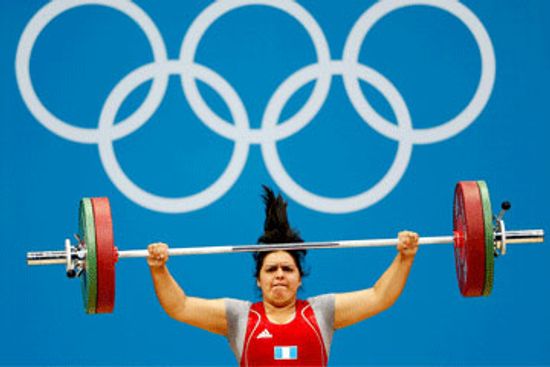Weight Loss
Overwhelmed by the amount of weight-loss information out there? Check out these articles for a simple and comprehensive approach to losing weight.

How to Succeed at Intermittent Fasting

The Keto Craze: Does the Diet Live Up to the Hype?

10 Things That Affect Your Weight Besides Food and Exercise

How Many Miles Are In 10,000 Steps?

7,000 Steps Is the New 10,000 Steps

How Many Calories Will the Tour de France Winner Burn?

What time of day is best for an office workout?

10 Office Exercises You Can Do Secretly

5 Quick Office Exercises

Climb Stairs Instead of Guzzling Caffeine for an Energy Boost

5 Tips to Finally Achieve Your Fitness Goals

Bigger Muscles Don't Mean Stronger Muscles, Ya Meatheads

Do men really have more upper body strength than women?

Tips From Greg Vanvakaris, DC, CSCS

Tips From Stuntman Dave Lea

Are Minimalist Running Shoes the Key to Fewer Injuries?

Is Runner's High Even Real?

Surprising Number of Marathoners Had Kidney Damage in Small, New Study

Yes, Hot Yoga Can Still Be Hot at Home

Namaste: It Doesn't Just Mean Yoga Class Is Over

Yoga Makes People Super Emotional. But Why?
Learn More / Page 2
There are dozens of well-known diet plans to choose from these days, and many of them focus on familiar themes. Dieters use commercial programs from Weight Watchers to Slim-Fast to lose weight. Learn more.
I've read your article on dieting, but there's one thing in it I don't understand. It says, "Once you end a diet, you gain all the weight back very quickly." Why is that? Why does the weight come back so quickly?
Calories -- people are constantly counting them and cutting them. At any given time, millions of people are trying to slim down. Learn all about calories and exactly how (and why) they affect your weight.
By Julia Layton
Advertisement
The number on the scale alone can't tell you whether you're at a healthy weight. Because height is also a factor, scientists came up with a mathematical formula called Body Mass Index (BMI). Learn how to calculate your BMI.
Dieting is a multibillion dollar industry in the United States, but it doesn't work for most people. The story tends to stay the same -- lose 20 pounds, gain back 30. But there are healthy, effective ways to lose weight. Find out why most diets fail and what you can do to make yours work.
About 65 percent of Americans are either obese or overweight, and the CDC has classified obesity as an epidemic, yet recent studies have shown that obese people with chronic diseases have a better chance of survival than normal-weight individuals do.
A sensible diet and regular exercise are essential components of any successful weight loss plan. Learn helpful tips for cutting calories, making smarter food choices, and increasing your physical activity to help you lose weight.
By Gayle A. Alleman






